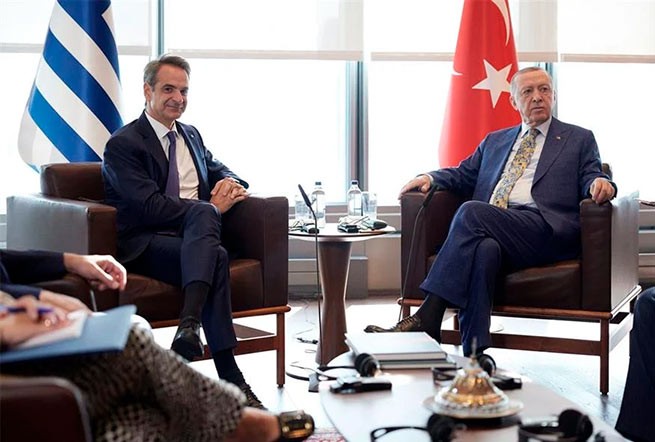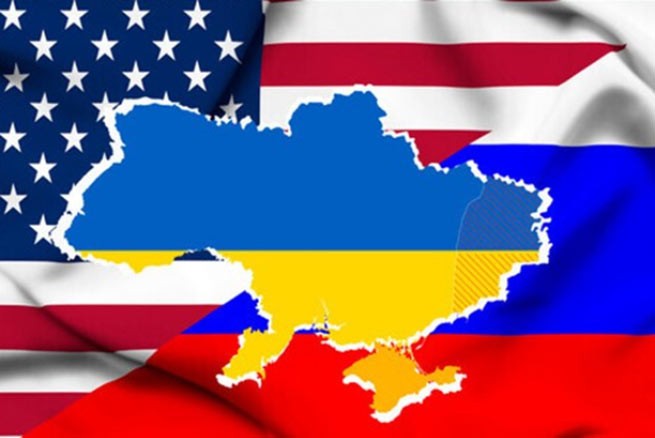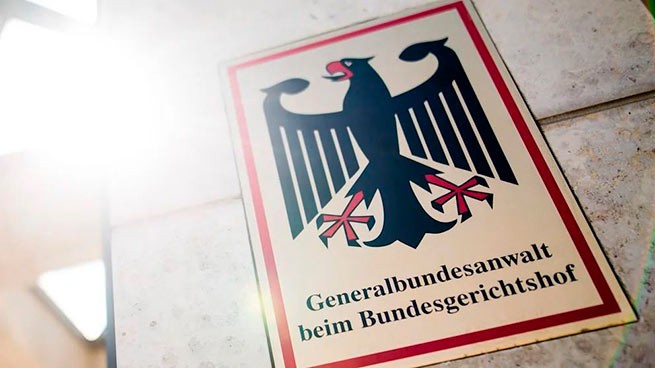Developments in Eastern Europe and sanctions EU in regards to Russian media, Sputnik and Russia Today have reached Greece as Russia’s Sputnik’s Greek branch in the country closes and workers complain they are suddenly out of work.
Sputnik staff wrote their latest article, and “this is nothing short of a bitter and unfair farewell to a publication that had dozens of employees suddenly left without a ‘voice’ and a job,” they said in a statement. Democratic Greece and Europe, which stands up for rights and freedoms, are shutting down Sputnik.
Employees, journalists, reporters and administrators complain that “Europe and Greece, by masterful methods of technological and economic silence, are preventing Sputnik from continuing” under the pretext of “stopping propaganda.” “European institutions and governments are showing what they really want”: to control everything that will be broadcast, what news is correct and what should be cut so that no one will know it.
At the same time, they emphasize that European institutions and governments are making extremely dangerous choices for the future of the peoples of Europe: “They are choosing a return to the Middle Ages, they are choosing neo-Macarthism, creating dangerous legacies for the future of the media. In Greece, despite the experience of the underground work of the employees of the ERT TV channel banned by the New Democracy in 2013, journalistic bodies and associations remained silent, they pretended that they did not exist.”
Recall that on Sunday, February 27, the European Union decided about the Sputnik ban and Russia Today, “because we express our opinion without the consent of Brussels,” as previously reported by Sputniknews.gr.
ΕΣΗΕΑ: Censorship does not fight disinformation
For their part, the boards of directors of ΕΣΗΕΑ, the Union of Foreign Correspondents in Greece and ΕΣΠΗΤ, the Union of Editors of Periodical and Electronic Publications, express “serious concerns about media bans in Europe, as was the case with the recent unprecedented decision by the president of the European Commission to block the RT and Sputnik networks.
We support the European Federation of Journalists and reaffirm the conviction of journalists around the world, expressed in the statement of EFJ Secretary General Ricardo Gutiérrez: “The challenge for democracies is to fight disinformation while maintaining their freedom.” Below is the full EFJ announcement approved by our associations.”
“EUROPEAN FEDERATION OF JOURNALISTS”
Disinformation is not censored
European Commission President Ursula von der Leyen announced on Sunday that the Kremlin-backed broadcaster RT, formerly known as Russia Today, and news agency Sputnik would be banned from the EU. The European Federation of Journalists (EFJ) fears the consequences of a sharp increase in censorship of free speech in Europe.
“We will ban the Kremlin media machine in the EU. The state-owned Russia Today, Sputnik and their subsidiaries will no longer be able to spread their lies to justify Putin’s war,” said Ursula von der Leyen. “We are developing tools to prevent their toxic and harmful disinformation in Europe,” she added, without elaborating.
Since EU member states gave the green light to the Commission’s proposal on Tuesday, the sanction was published in the EU’s Official Journal, effectively giving national media regulators the power to block RT and Sputnik. The sanction applies to the transmission and dissemination of news via satellite or cable, through online video sharing platforms, as well as new or already installed applications.
European Commission Vice-President for Values and Transparency Vera Yurova and Internal Market Commissioner Thierry Breton spoke with the chairman and members of the European Audiovisual Regulators Group (ERGA) to discuss the implementation of the measures. They urged the oversight body to ensure sanctions are “immediate” and ERGA agreed. The sanction will affect the transmission and distribution of news via satellite, cable, Internet video sharing platforms, as well as new and already installed applications.
EFJ (European Federation of Journalists) Secretary General Ricardo Gutierrez expressed surprise: “First of all, we must remember that media regulation is not within the competence of the European Union. We believe that the EU does not have the right to issue or revoke broadcast licenses. This is the sole responsibility of Member States.”
“Secondly, the complete abolition of one media does not seem to me the best way to combat disinformation or propaganda,” added Gutierrez. “This act of censorship can have the exact opposite effect on citizens watching banned media. In our opinion, it is always better to fight the misinformation of the so-called propaganda media by exposing their real mistakes or bad journalism, demonstrating their lack of financial or operational independence, emphasizing their commitment to the interests of the government.”
The Hellenic Union of Journalists (ΕΟΔ) recalls the case law of the European Court of Human Rights, which states that a media ban is a serious act that must be based on sound legal and objective evidence in order to avoid arbitrariness. “The challenge for democracies is to fight disinformation while maintaining freedom of speech,” Gutiérrez said.
ΕΟΔ suggests other strategies: increasing support for independent journalism, strengthening editorial independence, strengthening the social position of journalists, promoting journalistic ethics through independent press councils, encouraging media pluralism, informing everyone about media information, increasing transparency for those in power (which they themselves never offer! ).
“The real antidote to disinformation is not to ban the media, but to promote a dynamic, pluralistic, professional, ethical and sustainable media ecosystem that is completely independent of those in power,” Gutiérrez said.
“The practice of censorship is fraught with possible retribution, as we saw with the Deutsche Welle ban in Russia in response to the RT ban in Germany. The result of this escalation has been a weakening of media pluralism in Russia. Citizens have lost the right to access information transmitted by DW. It’s sad,” he concluded.
Earlier, Sputniknews.gr informed its readers how to continue reading their publication. In particular, the article states: “Following the recent statements by the head of the Commission, Ursula von der Leyen, regarding the blockade of Sputnik, we consider it appropriate to tell our readers how they can continue to read us.
Yesterday (28/02/) Instagram deleted our account, and on Facebook, where restrictions were also introduced, our posts no longer appear on the pages of registered users.
Today, the censorship continues as Google downgrades Sputnik in search results.
What you can do for those who want to continue reading us:
1. Subscribe to our Telegram account.
2. Download VPN (you can download any VPN connection outside the EU).
On March 4, Sputniknews.gr was completely blocked, and access to it was closed.






More Stories
4 scenarios for the development of the war in Ukraine
Greek "Iron Dome" and F-35 as a missile hunter
How Germany began to buy “dirty energy” by abandoning nuclear power plants